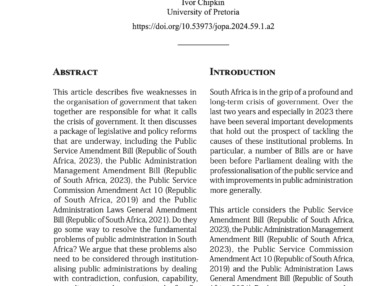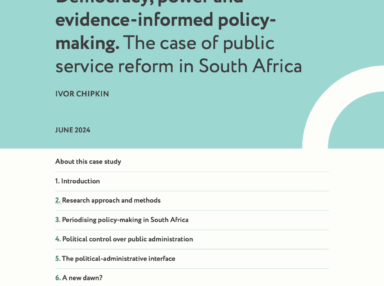Redefining Police’s Role: NSI’s Report on Social Emergencies & Disorder
In a first of its kind event, the New South Institute (NSI) made history as it launched the significant research report, “The Function of the Police: Crime, Social Emergencies and Disorder“, at the Library in Parliament on June 14. Authored by our Executive Director and co-founder, Ivor Chipkin, this marks a historic moment with Parliament opening its doors to an external organization, underscoring the importance of bringing policy discussions to the heart of our democracy.
During the event, Chipkin expanded on the comprehensive function of the police, shifting the focus from fighting crime to managing social emergencies and promoting safe neighbourhoods. “The police role is fundamentally to protect and to manage relationships between people that don’t really know each other…it’s managing relationships between strangers and preventing strangers from hurting each other,” Chipkin elaborated.
Irvin Kinnes, an Associate Professor from the University of Cape Town’s Centre of Criminology, further enriched the discussion. Karyn Maughan, a Legal Journalist from News24, seamlessly moderated the discourse.
Maughan emphasized the critical role of the report in redefining our understanding of the police. She commented, “When we look at informing the police, we need to start interrogating in an ideal society, what is the function of the police? And I think that’s what this report does so brilliantly”.









The introduction of NSI’s thought-provoking report, in the heart of South Africa’s democratic institution, signifies a significant shift towards a more participatory policy discourse. The analysis presented in the report underlines the importance of viewing the police’s role through a wider lens – one that goes beyond traditional crime-fighting and delves into social emergencies and maintaining community safety. This reframing could be instrumental in influencing future policies, improving police-community relations, and fostering a more secure environment for all citizens. By hosting this pivotal conversation in Parliament, we are not only bringing these critical issues to the forefront of policy discussion, but also paving the way for more such inclusive and evidence-based dialogues that can potentially shape our democratic future.



